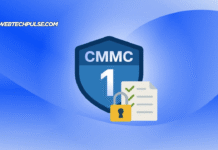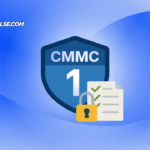Web applications are the most important part of any business as the entire business operations relay on websites these days. Website security should be given the major focus that is neglected by most of the developers. Proper security testing methods should be applied to the website to ensure the correct working of the web application without any hassle. Any blunder in the security of web applications can lead to the crash of the whole website or web application being hacked leading to the improper use of important information. You can tackle the security issues at the early stage by using the correct strategies and utilizing DigiCert Code Signing for the protection of your web application.
However, to keep your website safe from malicious attacks, some important security measures should be implemented into it that can lead to the powerful protection of your website. In this article, we are going to share the effective approaches to improve the security of your web applications.
Read more: Tips For Using Social Media To Generate Legal Client Leads
-
Test The SDLC Process
Developers become so busy in creating web applications and adding different features that they ignore the security completely until the first version is built. They neglect the security issues within the development process and focus on the functioning of resources. These small mistakes result in huge security problems, in the end, making the web app vulnerable. Instead of waiting for the designing and development process to end, start working on security measures as soon as the designing process is started and implement these testing processes throughout the software development life cycle. This will help you resolve security issues and tackle risky situations instantly as they arise. Automated security testing tools should be used to protect your website from attacks.
-
Regularly Scan Your Site
The majority of the websites get attacked due to the reason that regular security checks are not made to the web apps to test server vulnerabilities. There should be a defined schedule for the web security scans covering all the major components and features of the website. There are a variety of security testing tools that measure the security of your website telling you the correct percentage and precautions to be taken. Some tools can go through your website giving a brief review but are unable to detect all the security issues arising on your website. Investing in a powerful security testing tool can provide an explanation of all the vulnerabilities of your web application that should be immediately eliminated.
-
Protect Against XXS Attacks
Cross-site scripting attacks integrate corrupted JavaScript files into your web application. These injected malicious files then run into user’s browsers that change the content of web pages or it can even steal important information on your website. If you have enabled without validation comments on your web pages, then the attackers can submit various comments with the help of script tags of JavaScript. These tags can get into the login cookie of the user and steal their login information including the password. Now, most of the web pages are built using the content of users and even generate HTML in some cases interpreted by a framework such as Angular. These front-end frameworks provide XSS protections keeping your content of web pages safe and protected.
Also you can use cheap code signing certificate to secure your web application and software, which will tell your users that the application or software is safe to use.
Read more: The Ugly Side Of Paid Social Media Traffic
-
Keep Up With The Tech
You should make sure that your web app is using all the latest technologies and is up to date adopting the new updates released by every technology integrated into it. It is an essential step in the security of any web app as if the updates are not instantly installed into the website then it may affect the functioning of the whole web application. Security holes arise in the web application when not kept updated, allowing hackers to easily attack the website. If your website uses hosting service then it is the responsibility of the hosting service provider to apply security updates to the system. For third-party software testing techniques should be applied to find security holes and keep them up-to-date.
-
Set Strong Passwords
In this modern world when everyone is aware that passwords can be hacked easily and is not a big deal for most of the hackers, they still choose to set basic passwords. For logins, passwords should be as complex so it can’t be decrypted by an attacker using numbers, special characters, and figures. There are password management apps available that make things easier providing suggestions to choose a complex password. You can save them so you don’t need to remember every password. Mobile application development services make sure that all your web app users have set strong passwords for their accounts and provide them with suggestions like to use special characters in the password to make it stronger and unbreakable.
Read more: Search Engine Marketing
In the end, it could be stated now that the above tips and techniques are best for protecting web application in a proactive manner.












